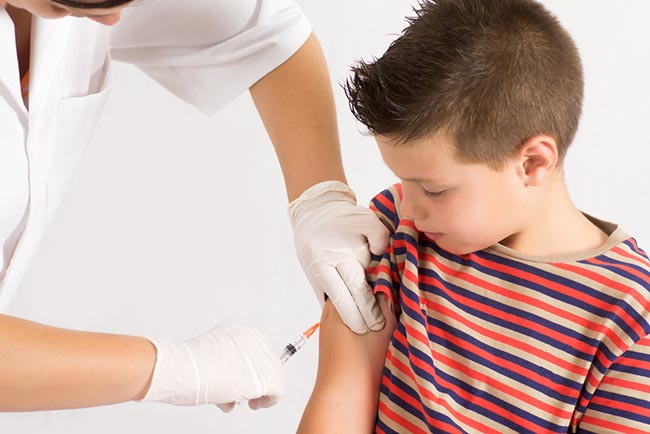Find out the Differences of Vaccination and Immunization Here
Many people often consider vaccinations and immunizations to be the same thing. In fact, vaccination and immunization have different meanings. Differences in vaccination and immunization are often overlooked because they share the same goal of increasing the body's resistance to certain diseases.
Vaccination is the process of administering the vaccine by injection or dropping into the mouth to increase the production of antibodies to ward off certain diseases. Meanwhile, immunization is a process in the body for someone to have immunity against a disease. Immunization is divided into active and passive immunization.

Vaccination is included in active immunization as an effort to trigger the body to release antibodies against certain diseases. In contrast to passive immunization which means the body is given antibodies and not provoked to produce endurance, such as immunoglobulin injections. Active immunization can last longer for long-term to lifetime, whereas passive immunization lasts only within weeks to months.
How Vaccines Work In The Body
In addition to understanding the difference in vaccinations and immunizations, it is important to understand how it works. Vaccines are inserted into the body through vaccination, generally containing attenuated virus or bacteria, as well as bacterial-like proteins obtained from laboratory development.
The vaccine content raises the body's immune response, which can prepare the body to resist attacks infection later on. This process is a process of immunization in the body.
The method of vaccine administration in immunization varies. A number of vaccines are given only once for a lifetime and there is also a need to be given periodically so that the immune system is perfectly formed. Although more often given to children through immunization in health centers, vaccines can actually be given to adults as a form of advanced immunization, or with a different type.
Each country has its own rules regarding the obligation to immunize. In Indonesia, there are at least five compulsory vaccinations to be given by immunization, namely hepatitis B vaccine, polio, BCG, DTP and measles. In addition to the mandatory vaccine there are a number of government-recommended vaccines, such as Hepatitis A, HPV, varicella, MMR, rotavirus, influenza, typhoid, and other vaccines.
Benefits of Immunization in Children
To date there are still many who argue about the need to immunize children. If traced further, children who get complete basic immunization will be protected from dangerous diseases. Because, the immune system will increase after getting immunization. In addition, immunization also serves to prevent transmission of a disease from one person to the people around him. To maximize the effects of immunization in children, try to always meet the nutritional needs, either through the provision of breast milk (ASI) and healthy companion foods. In addition, keep the body and environment clean so as not to get sick easily.
After understanding the difference of vaccination and immunization, try to always meet the immunization schedule. One study shows, immunization proved able to provide human protection from attacks of various kinds of dangerous diseases. Consult a doctor to get the appropriate recommendations.